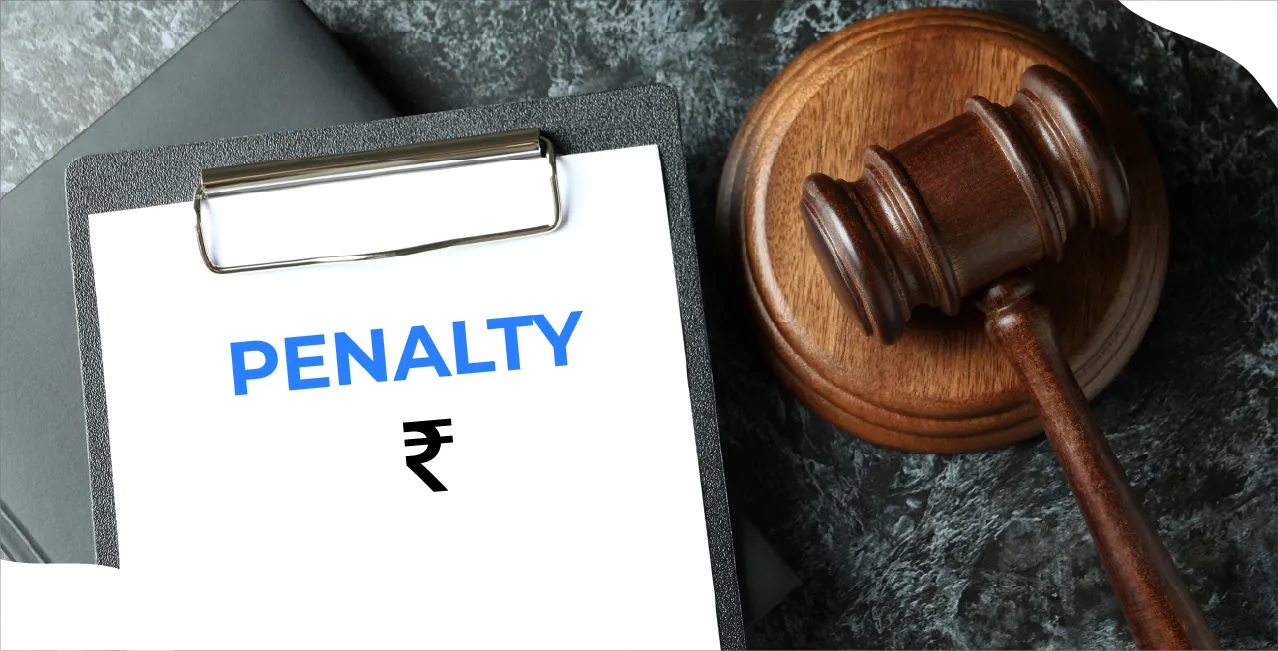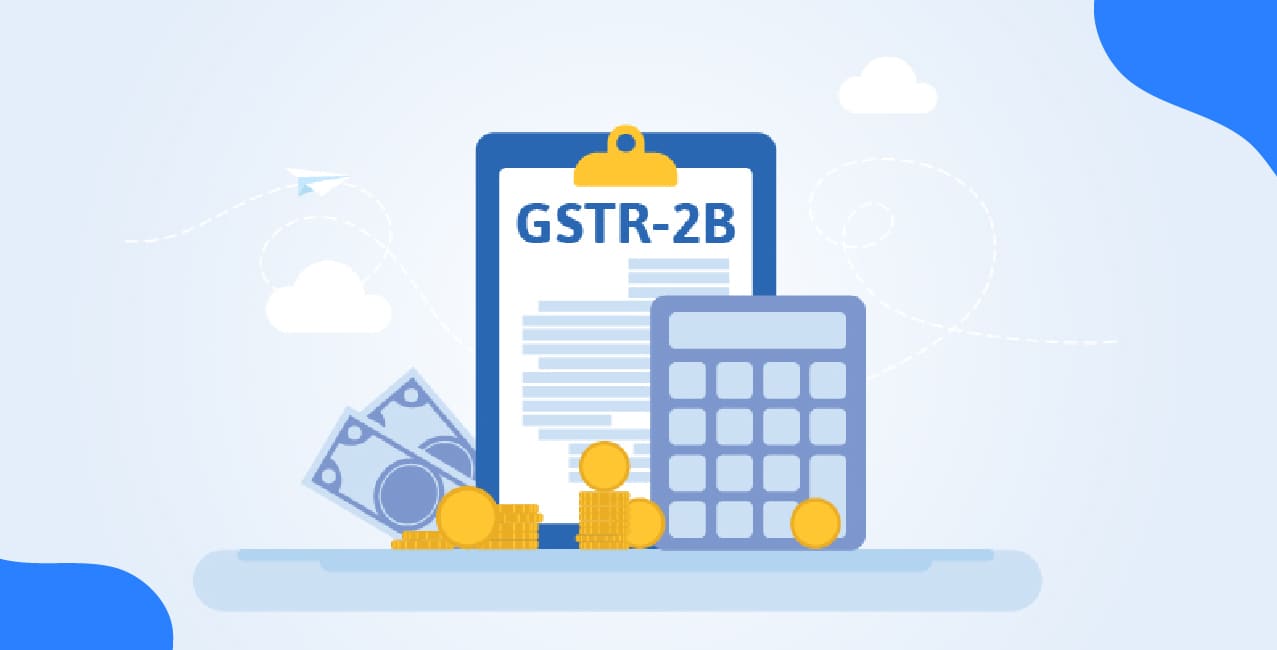Section 271F of Income Tax Act: Late Filing Penalty Explained

Check Your Loan Eligibility Now
By continuing, you agree to LoansJagat's Credit Report Terms of Use, Terms and Conditions, Privacy Policy, and authorize contact via Call, SMS, Email, or WhatsApp
Section 271F of the Income Tax Act allows the tax officer to impose a ₹5,000 penalty if an individual fails to file their income tax return by the end of the relevant assessment year.
Rahul Verma, a 29-year-old trader from Jaipur, earned ₹6.5 lakhs annually through his online business. Despite reminders from friends, he kept delaying his Income Tax Return (ITR) filing. He missed the financial year deadline of 31st March 2022, and even the assessment year ended without action on 31st March 2023.
One day, Rahul received a notice under Section 271F of Income Tax Act. A penalty of ₹5,000 was imposed for not filing his return on time.
Rahul was stunned. He remembered the 3 Idiots line: “Dost fail ho jaye toh dukh hota hai, lekin dost topper ban jaye toh zyada dukh hota hai.” His friends had all filed on time.
It was a lesson in responsibility, even with no tax due, not filing can lead to penalties. And the penalty wasn’t just about money.
Moral: Don’t miss your ITR deadlines. Section 271F Of Income Tax Act doesn’t forgive carelessness.
Section 271F Of Income Tax Act: Introduction
Section 271F Of Income Tax Act was made for people who forget or avoid filing tax returns.
If someone earns more than the basic tax limit, then filing ITR is a must. Not doing this before the end of the assessment year can result in a ₹5,000 penalty. This section helps the government ensure that people follow tax rules properly.
According to The Economic Times, over 6.77 crore ITRs were filed for AY 2023– 24. This is a huge number. The government is serious about tax filing.
They are using SMS, emails, and more ways to remind taxpayers. So, Section 271F Of Income Tax Act is becoming even more important.
Importance of Section 271F Of Income Tax Act
Let’s talk about Neha. She is a graphic designer in Delhi earning ₹8 lakhs yearly. She didn’t file her ITR for FY 2022–23. Because of this, she was charged under Section 271F Of Income Tax Act.
This section is important because:
- It keeps people disciplined.
- It helps the tax department track non-filers.
- It prevents tax evasion.
Even if no tax is due, ITR filing shows financial honesty.
Objectives of Section 271F Of Income Tax Act
Ramesh, a 40-year-old IT consultant from Pune, missed his ITR deadline. Now he tells everyone about the "objectives" of Section 271F Of Income Tax Act.
The objectives are:
- Encourage timely return filing
- Discourage a careless attitude
- Make every earning citizen accountable
- Ensure smooth data collection
"Bade bade deshon mein aisi choti choti baatein hoti rehti hain," but not in tax matters!
This section teaches that ignoring tax dates is not a small thing.
TDS Rate Under Section 271F Of Income Tax Act
There is no direct TDS rate under Section 271F Of Income Tax Act because it talks about penalty, not deduction at source. But still, let’s understand this with Ravi’s story.
Ravi earned ₹7.2 lakhs but didn’t file ITR. Even though TDS was already deducted by his employer, he was still penalised ₹5,000 under Section 271F Of Income Tax Act.
So, even when TDS is already paid, filing returns is a must to avoid this penalty.
Exemption Under Section 271F Of Income Tax Act
Now meet Priya, a retired teacher. She earns ₹2.3 lakhs per year, below the basic exemption limit. She didn’t file her ITR, but guess what? She was not charged any penalty.
That’s because Section 271F Of Income Tax Act has a key exemption:
If your total income is below the basic exemption limit, then you won’t be fined under this section.
So yes, Section 271F Of Income Tax Act is not for everyone — only those who were supposed to file but didn’t.
Due Date and Compliance Requirements of Section 271F Of Income Tax Act
Let’s take Ankit’s example. Ankit had a side business and earned ₹5.8 lakhs in FY 2022–23. He thought ITR filing could be done any time. But he didn’t know the assessment year ends on 31st March 2024.
According to Section 271F Of Income Tax Act:
- The return must be filed before the end of the assessment year.
- Otherwise, a penalty will be imposed.
“Jo waqt pe kaam karta hai, wahi sacha taxpaying hero hai.”
Practical Examples of Section 271F Of the Income Tax Act
Let’s look at a few real people:
This shows how the Section 271F Of Income Tax Act works. Not filing = penalty. Filing = peace of mind.
Conclusions of Section 271F Of Income Tax Act
Section 271F Of Income Tax Act is not just about a ₹5,000 fine. It shows the importance of following the tax system.
People who avoid filing income tax returns must remember: Ignoring deadlines leads to penalties. Filing your returns on time brings real benefits, smoother loans, faster refunds, visa approvals, and peace of mind. “Don ko pakadna mushkil hi nahi, namumkin hai.” But when it comes to tax rules, there’s no escaping, compliance is a must.
FAQs of Section 271F Of Income Tax Act
Q1. Why does Section 271F still matter in 2025?
It still applies to ITRs pending for assessment years before 2018–19.
Q2. What is the main difference between Section 271F and 234F?
271F imposed a discretionary ₹5,000 fine; 234F auto-applies late fees based on income.
Q3. Can I still get a penalty notice under Section 271F?
Yes, for belated or missed returns before April 1, 2018.
Q4. Does Section 271F affect salaried people with no tax due?
Yes, if total income exceeded the exemption limit and ITR wasn’t filed.
Q5. How do I check if I was penalised under Section 271F?
Check your income tax portal’s ‘e-Proceedings’ or outstanding demand section.
Other Related Pages | |||
About the author

LoansJagat Team
Contributor‘Simplify Finance for Everyone.’ This is the common goal of our team, as we try to explain any topic with relatable examples. From personal to business finance, managing EMIs to becoming debt-free, we do extensive research on each and every parameter, so you don’t have to. Scroll up and have a look at what 15+ years of experience in the BFSI sector looks like.
Subscribe Now
Related Blog Post
Recent Blogs
All Topics
Contents
Quick Apply Loan
Consolidate your debts into one easy EMI.
Takes less than 2 minutes. No paperwork.
10 Lakhs+
Trusted Customers
2000 Cr+
Loans Disbursed
4.7/5
Google Reviews
20+
Banks & NBFCs Offers
Other services mentioned in this article








